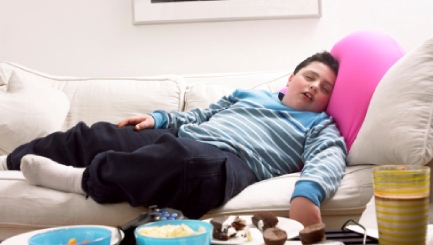Finding Out The Truth About Childhood Obesity
 A diagnosis of obesity means that your child’s wellbeing is at risk to a whole host of weight gain related problems. You can detect your child’s obesity by working out his or her BMI if they’re older than 2, and your doctor can help you assess whether their wellness is at risk from their weight gain. However, you can improve their wellness through dietary and activity changes.
A diagnosis of obesity means that your child’s wellbeing is at risk to a whole host of weight gain related problems. You can detect your child’s obesity by working out his or her BMI if they’re older than 2, and your doctor can help you assess whether their wellness is at risk from their weight gain. However, you can improve their wellness through dietary and activity changes.
Obesity can come down to genetic factors but often it means your child expends less energy than he or she takes in. Having junk foods in instead of homemade food, high intakes of sugar sweetened soft drinks and fruit juices, and strict dieting are chief reasons of increasing childhood obesity. During childhood, the proportion of energy derived from fat decreases substantially, and so it is important to consume healthy food, and avoid foods rich in glycaemic index such as breads, potatoes, soft drinks, biscuits and cakes. High GI foods cause a significant rise in blood sugar levels immediately after consumption, stimulate hunger, and induce flab-causing heart disease and diabetes. You need to replace high-energy, low-nutrient junk foods with fibrous food products that are rich in anti-oxidants, as well as utilising healthy day schedules to manage this problem.
Your child’s mental wellbeing is also at stake from obesity, as obese children feel detached and unable to make friends. You need to ensure your child knows you love them and appreciate them no matter what size they are, and that they don’t need to feel lonely. Your child probably knows their overweight, and need your love and encouragement to make the changes they need to. Encourage your child to find a sport or activity to enjoy and join in too, or take them for a daily walk or bike ride. Finally, when it comes to diet, your child needs to, essentially, take in less calories than he or she burns off and cultivate healthy eating habits, avoiding fatty and sugar rich junk foods and opting for fruits, vegetables and low-fat snacks. Set these habits now for everyone so your obese child doesn’t feel singled out by a new wellness plan, and you can set good examples for your child with your own habits and eat well and exercise together as a family.

Comments are closed.